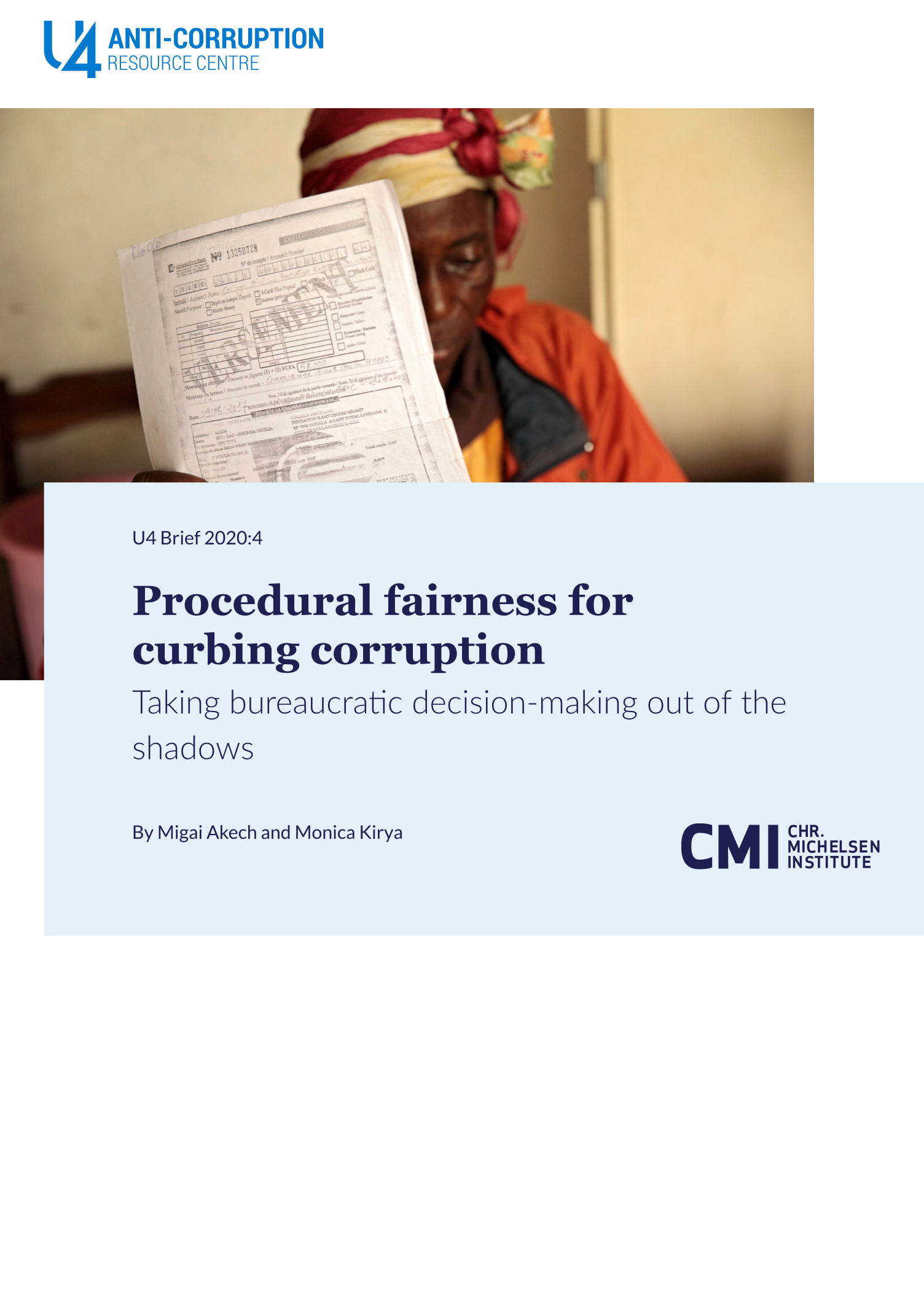Main points
- Procedural fairness has the potential to improve transparency and accountability in a variety of bureaucratic decisions that are prone to corruption. However, a key challenge in highly corrupt settings is the absence of individuals who could promote and enforce it – politicians and bureaucrats will be unwilling to change the status quo since they benefit from it.
- A statutory requirement for bureaucrats to provide written reasons for their decisions encourages better decision-making that is not only administratively sound, but also less likely to be tainted by corruption. The enactment of Fair Administration Action laws can improve bureaucratic decision-making and reduce abuse of power. Enshrining the right to fair administrative action in Constitutions or specific laws helps to clarify the legal position and provides a stronger basis for citizens and courts to enforce it.
- Strengthening legal aid and legal empowerment of the population is a necessary pre-condition for the enforcement of procedural fairness in administrative decision-making. Disaffected individuals can challenge decisions through the courts of law and can apply for a specific remedy.
- Judicial review of bureaucrats’ decisions can play a role in monitoring whether the principles of procedural fairness have been observed and where they have ‘got it wrong’. Individual case inspection can help them to improve, and court decisions can expose failings, stimulating reform and promoting good administration.

